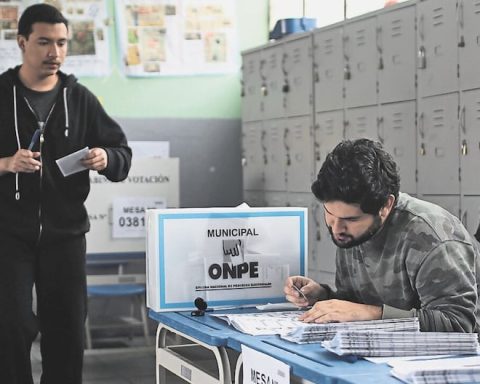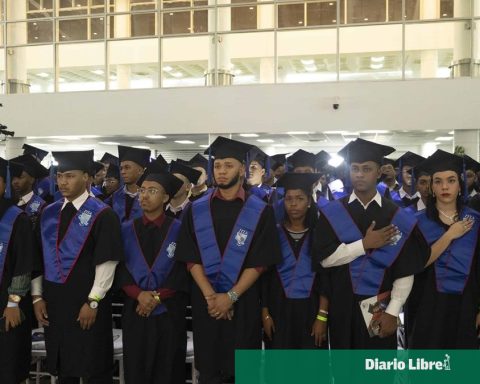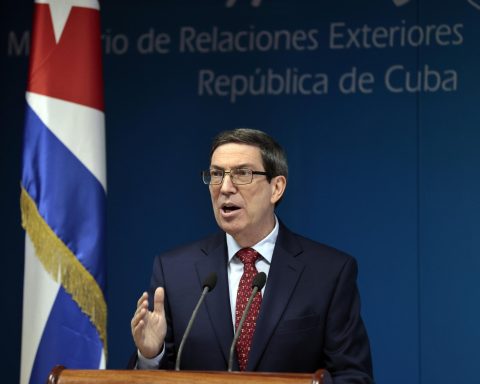This Wednesday, Chile Vamos added a new failure in the Chamber of Deputies and Deputies, by failing to get the opposition parliamentary base to line up behind the constitutional accusation that they presented against the former Minister of Justice and Human Rights, Marcela Ríos, the which was rejected by 82 votes against, 49 in favor and 3 abstentions. The ex-authority of the Government was accused of not having correctly substantiated the pardon decrees, in addition to criticizing its lack of hierarchical control in the granting of prison benefits to prisoners from the Mapuche conflict zone.
But the fragmentation on the right began to take shape days before this Wednesday’s session, when the Republican Party bench decided to lean against the accusatory libel, after the picking up of some deputies from Chile Vamos allowed the ruling party to get out of the constitutional accusation against the Minister of Social Development, Giorgio Jackson. A situation that became more complex in the midst of the review commission, which on Tuesday rejected the libel against Ríos, with the vote of the Republican deputy Benjamín Moreno.
The parliamentarian himself explained, in the preview of yesterday’s session, that “I reject this constitutional accusation, not because I believe that former minister Ríos was unaware that with her signature she was placing highly dangerous criminals on the street, nor because she could not do more to prevent terrorists from being treated as privileged prisoners every time they threaten attacks: rejection because Marcela Ríos did not pardon Mateluna, it was the President himself (Gabriel Boric)”.
As a counterpart, from Chile Vamos they confronted the bench of the community founded by former presidential candidate José Antonio Kast, calling them “passive accomplices” of the pardons, in relation to their position contrary to the accusation against Marcela Ríos. In this regard, deputy Miguel Mellado (RN) stated that “Republicans are a passive accomplice of the pardons and of having released criminals and terrorists. This is what he demonstrated: that they have no problem selling themselves to the Government.”
In addition, the opposition parliamentarian said he regretted “that the Republican Party is blurring, because it came into politics unsullied trying to say that we (Chile Vamos) are doing things wrong, and I would like to ask: what did they cook with the Government? What did they offer you to have this big somersault?” In this context, Mellado referred to the complex state of relations between Chile Vamos and the Republican Party, assuring that “we are in separate beds anyway. Here it will be very difficult for this couple to go back to bed together (… .). It depends on them, because they are the ones who broke this marriage.”
From the ruling party, in part, they celebrate the fragmentation of a right that is trapped in its own contradictions, and that has enabled it to escape from a scenario that could have been even more unfavorable in its objective of moving forward with its -until now questioned – reform program. In this context, the Social Convergence (CS) deputy, Emilia Schneider, affirmed that a scenario is beginning to crack where “the Republican Party puts on the music and the rest of the right dances to the rhythm of Kast and company.”
For his part, and regarding what he considered a “dispute between two right-wings”, the deputy Leonardo Soto (PS) maintained that “next, because the fight continues, and in this there is always a subsequent battle, they suggest that they are evaluating a constitutional accusation against President Boric All of this is a political dispute, where they are competing for the same electorate, and against which the Republican Party has used the strategy of overthrowing ministers through constitutional accusations, making a kind of Olympic bearing of the accusations, not to make the government’s responsibilities effective, but to defeat Chile We are going to the polls, in the elections that are coming at the end of the year and next year It is unfortunate that Chile is trapped in a frontal war between the two rights”, raised the parliamentarian.
Fragmentation of the right and its effects on a possible accusation against President Boric
When leaving the session on Tuesday, the deputy Miguel Mellado (RN), regarding the possibility of a constitutional accusation against President Gabriel Boric as a result of the pardons granted last December, assured that they will carry out “a thorough investigation in the investigative commission –which has already been approved and is expected to be constituted in March– to see if there is political merit for it or not”.
From within Renovación Nacional they explained that, from their point of view, regarding the pardons there is a contradiction in the Government between what was said by the spokeswoman, Camila Vallejo (PC), when she admitted that “if the President had had all the elements in sight the situation would have been different”, and what was indicated by the new head of the Justice portfolio, Luis Cordero, who assured that the President did not pardon the wrong people.
“There is no precedent that shows that the President had pardoned the wrong people, all the precedents are in the files,” Cordero indicated precisely in Radio Dune. Position that was endorsed by the President this Wednesday, January 25.
In this regard, a parliamentarian from Renovación Nacional pointed out, in reserve, that for them the central point of the response from the minister’s defense attorney, José Antonio Viera-Gallo, would suggest that the responsibility for the grounds they invoked – not having properly substantiated the decrees of pardons – would not correspond to the ex-holder, but to the Head of State. “If Viera-Gallo’s thesis is confirmed, in the investigative commission we would have to evaluate a constitutional accusation against the President,” he pointed out.
Deputy Mellado explained to The counter that in the special investigative commission for presidential pardons they expect ex-minister Ríos to come to “give her version.” In addition, the parliamentarian specified that “what we are going to see in the investigative commission is if it was the President who made the decision, or if it was the advisers who did not put all the information on the table.”
It should be considered, in this context, that on March 9 a group of UDI deputies filed a request with the Comptroller General of the Republic, in order to review the legality of the pardons granted by President Boric to 12 people convicted of crimes in the framework of the demonstrations of the social outbreak, in addition to the one granted to the ex-frontist Jorge Mateluna.
Finally, from the ruling party, the deputy of the Broad Front and vice president of the Chamber, Catalina Pérez (RD), ruled out the viability of an accusatory libel against the President, stating that “the constitutional accusations refer to the lack of legality or the compliance with the Constitution of one or another minister of State and, therefore, the responsibility that falls on the review of the constitutional accusation is of an individual character of a minister or ex-minister of State. Therefore, that politically it is sought to link the responsibility of the minister who is the object of the constitutional accusation with the responsibility of the President, also seems to me nonsense in the use of the tool”, he added.


















